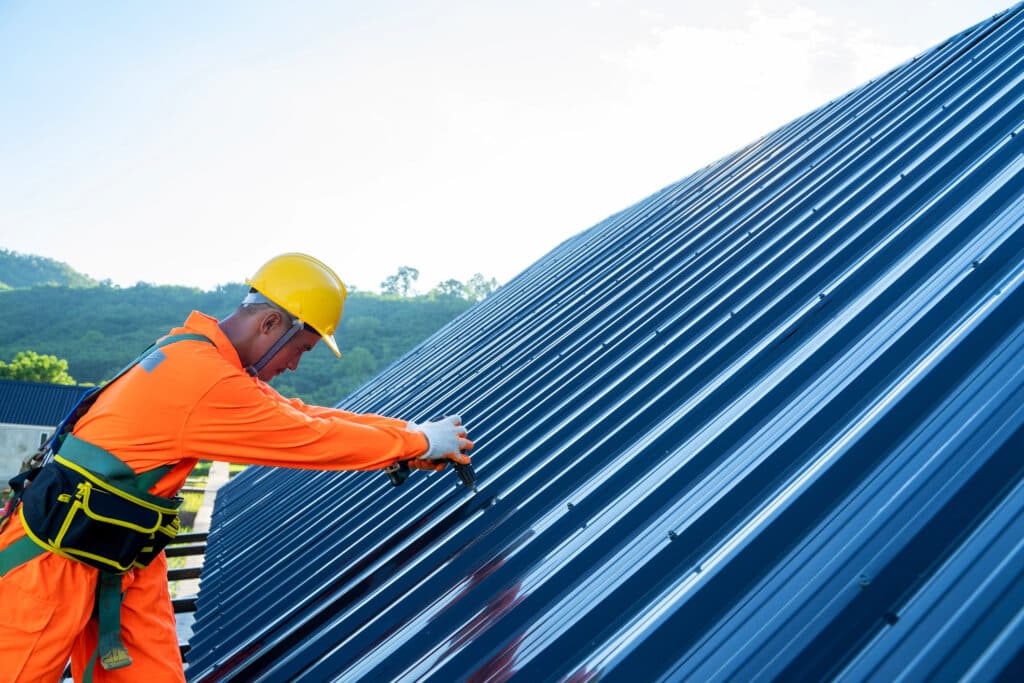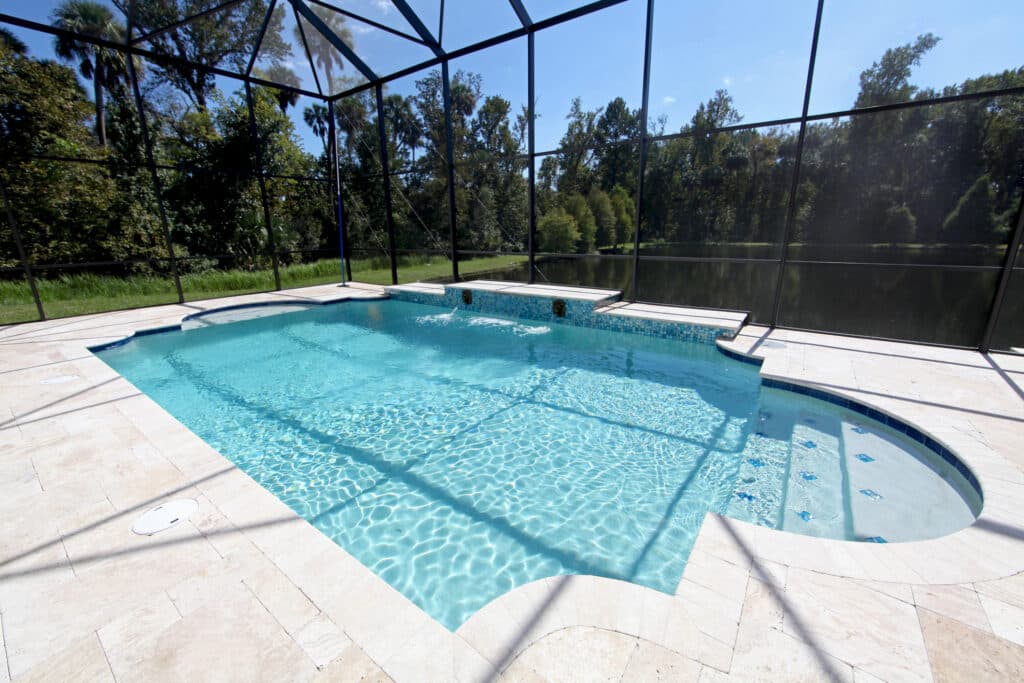A Comprehensive Guide to Hurricane-Resistant Pool Cages Materials
For Florida homeowners, pool cages are as much a part of outdoor living as palm trees and sunshine. Yet every hurricane season brings anxiety about whether these outdoor sanctuaries will withstand nature's fury. From Hurricane Ian's devastating impact in 2022 to the nail-biting moments during Hurricane Idalia in 2023, we've seen firsthand how these powerful storms can transform pool enclosures into costly repair projects or, worse, dangerous projectiles. Therefore, choosing the right materials for a hurricane-resistant pool cage is crucial.
Whether you're replacing a damaged enclosure or planning a new installation, understanding your options for hurricane-resistant materials isn't just about complying with Florida's stringent building codes; it's about peace of mind when those weather alerts start rolling in. This guide explores the top materials for a hurricane-resistant pool cage and explains what makes them so effective. We've also included some key considerations to keep in mind when selecting and maintaining your pool cage materials.
Factors To Consider When Choosing Materials for Hurricane-Resistant Pool Cages
Before we get to the specific materials, understanding what makes a pool cage hurricane-resistant is essential. Here are the key factors to consider when choosing materials for your pool enclosure:
- Wind resistance: Hurricanes can produce winds of up to 150 miles per hour or more, so the materials used must be able to withstand these powerful gusts. Choose materials that can withstand higher wind speed ratings to provide better protection for your pool cage.
- Impact resistance: With debris flying around during a hurricane, your pool cage must be able to withstand impacts from objects like tree branches and patio furniture. Look for materials that are tested and rated for impact resistance, such as those certified by ASTM International.
- Corrosion resistance: Living in a coastal region exposes materials to saltwater and humidity, which can accelerate corrosion and increase vulnerability during a hurricane, making them more vulnerable to damage. Choosing materials with corrosion-resistant properties can ensure your pool cage remains intact for longer.
- Maintenance requirements: Hurricane-resistant materials should not only be strong but also low maintenance. Wood, for example, may need to be repainted or restained periodically, while aluminum typically requires very little maintenance.
- Budget: Hurricane-resistant materials often come at a higher cost, so consider your budget and find a balance between quality materials and affordability. Investing in durable materials now can save you from costly repairs or replacements later.
Common Materials Used for Hurricane-Resistant Pool Cages
Now that you know the key factors to consider when choosing materials for a hurricane-resistant pool cage, let's explore the most common options available in the market.
Aluminum
Aluminum is an excellent choice for pool cages due to its strength and durability. It's lightweight, making it easier to install, and can withstand high winds without bending or breaking. Aluminum also has a high corrosion resistance, making it ideal for coastal areas like Florida. When choosing aluminum materials for your pool cage, opt for thicker gauge numbers for better wind resistance. Also, ensure the aluminum has a powder coating finish to prevent rusting.
Polycarbonate Panels
Polycarbonate panels are another popular choice for pool cages, thanks to their impact resistance and high wind rating. These panels consist of a durable plastic material that is virtually unbreakable and can withstand heavy impacts from debris during hurricanes. They also protect from harmful UV rays and allow natural sunlight to enter the enclosure. Although they're corrosion-resistant, they may require more maintenance to prevent discoloration over time.
Fiberglass
Fiberglass is a strong, lightweight material that is highly resistant to corrosion, making it an excellent choice for hurricane-resistant pool cages. While it costs more than aluminum, it offers greater strength and durability. Additionally, fiberglass is easy to maintain, as it doesn't require painting or staining like wood.
Stainless Steel
Stainless steel is a popular choice for pool cage frames due to its high strength and corrosion resistance. It's also visually appealing and comes in different finishes to complement your outdoor space. However, stainless steel is pricier than other materials on our list, so consider it for crucial structural elements instead of the entire pool cage.
Vinyl-Coated Polyester Screens
Pool cages need screens to keep out debris and pests while allowing airflow and sunlight. In hurricane-prone areas, vinyl-coated polyester screens are essential. They're strong, water-resistant, and offer great protection against debris during storms. Plus, they come in various colors and styles to match your aesthetic.
Maintenance Tips for Hurricane-Resistant Pool Cage Materials
While choosing the right materials is crucial, proper maintenance is also essential to ensure your pool cage remains hurricane-resistant for many years. Here are some tips to follow:
- Regularly inspect: Inspect the frame, screens, and connections for damage or wear, and address any issues immediately to prevent worsening during a storm.
- Clean and maintain screens: Periodically clean your screens with mild soap and water to prevent discoloration and maintain their strength. Also, repair or replace any damaged screens promptly.
- Trim trees and shrubs: Cut back any trees or shrubs that could potentially cause damage to your pool cage during a storm.
- Rinse off saltwater: If you live in an area with high salt concentration, wash your pool cage regularly with fresh water to remove any salt deposits that can cause corrosion.
- Follow manufacturer's guidelines: Each material may have specific maintenance requirements, so be sure to follow the manufacturer's instructions for the best results.
Installation and Code Compliance
Professional installation is crucial for a hurricane-resistant pool cage. Even high-quality materials can fail if not installed correctly according to manufacturer specifications and local building codes. Experienced contractors know how to work with different materials to ensure proper integration of all components.
Building codes in hurricane-prone areas have become more stringent, reflecting lessons from past storms. These regulations specify minimum requirements for materials, construction methods, and anchoring systems. Compliance is not just a legal obligation; it's essential for the safety and longevity of the structure.
Looking ahead, advancements in material science and engineering continue to improve the options available for hurricane-resistant pool cages. By choosing the right combination of materials and ensuring proper installation and maintenance, homeowners can create outdoor living spaces that provide both comfort and security, even during severe weather. Whether building a new pool cage or upgrading an existing one, investing in quality materials and following best practices will help protect your pool and outdoor area during hurricane season.


